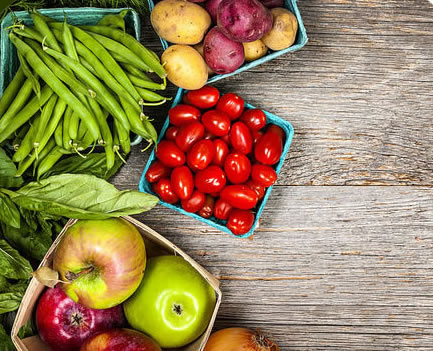Detox Diets and Cleansing Trends
Beneficial or a recipe for disaster?

Contributed by by Nancy Burke, R.D.; Danielle Karsies, M.S., R.D. and Melissa Shannon-Hagen, R.D., C.S.O.
University of Michigan Rogel Cancer Center Symptom Management and Supportive Care Program
Perhaps you have been thinking about trying a detox or cleansing diet. Is there any evidence these diets are beneficial? That depends.
- Fasting and juice-based cleanses are nutrient-deficient and very low in calories, which hinder normal body processes.
- Interventional cleanses can be dangerous, even causing death, as they include laxatives, colonics and diuretics to "flush out the system."
- Clean-eating is relatively safe with its focus on whole, organic foods and minimal processing, but often limits the ability to eat outside of the home.
If weight loss is your goal, a detox diet is not the answer. Studies report that very-low calorie diets work for only 20 percent of participants. Detox diets can also stimulate appetite, reduce metabolism and energy levels, and potentially increase stress hormones -- all of which hinder weight loss.
Our bodies naturally detoxify our systems each day.
Here are tips to help:- Drink at least 8-10 cups of fluids per day to aid digestion and bowel regularity.
- Eat at least two servings of citrus fruit a week. The pulp and rind add even more nutrients.
- Include fruits such as apples, blueberries and grapes that naturally help eliminate toxic metals.
- Choose fatty fish, nuts and seeds that help reduce inflammation and are high in selenium to detox the body of mercury.
- Eat whole grains, lentils, beans, fruits and vegetables, all high in fiber and phosphorus, to promote normal bowel function.
- Include fermented foods like yogurt, kefir, tempeh, sauerkraut and kimchi that contain helpful bacteria for a healthy gastrointestinal tract.
- Spice your food with ginger, hot pepper and coriander, which may aid digestion and eliminate heavy metals.
Watch our video playlist
Read the Summer, 2015 issue of Thrive.
